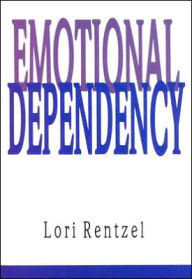Some wag has said that a perfectionist is someone who takes great pains . . . and gives them to others.
Once I asked my Facebook friends for examples of perfectionism and controlling behavior. Ohboyohboy, is that ever a problem! I’ve never had so many responses to a question! Here are just a few (and you can tell that there is a specific person attached to every example):
- Doing all the household chores because that way they will be done right. Then feeling resentful because no one ever offers to help and here she is, doing all the work herself.
- Reading Every. Single. Greeting card. To make sure they picked the perfect one.
- Rearranging the dishes in the dishwasher to her standards.
- Correcting details in your spouse’s stories.
- Laying out your children’s clothes every day. Making their beds. Cleaning their rooms. Not letting them learn how to do anything for themselves because it won’t be perfect like you do it.
- People who drive in the fastest lane and go exactly the speed limit, trying to control others’ behavior.
- Telling a child they can’t eat egg “on the toast,” you must take one bite of egg, then one bite of toast.
- Staying up all night to clean for a party because someone might see one speck of dirt, or one thing out of place (as if someone is going to look in every corner of your house).
- After my mother vacuumed the living room floor, if she found footprints in the carpet, she lined us up and measured our feet to the prints. The culprit was made to bear the shame of messing up her hard work and had to re-vacuum the floor.
- If unhappy with your wife’s figure, as she eats things you disapprove of, you actually remove it from her hands and throw it in the trash.
- The table top is dirty. If you don’t use a tablecloth or placemats, you are scum and she won’t eat your food. One time I stacked the placemats the wrong way (one on top of another instead of folding them to the inside and stacking them, so that the table dirt doesn’t spoil them), and they all had to be washed. One time I unknowingly put clean laundry in the dirty laundry basket and it all had to be re-washed. She washed all kitchen knives, poured boiling water over them and baked them in the oven!
At the core of a controlling person is fear. “I am not okay and I’m going to be exposed as not okay.” That fear makes them feel that life is outside of their control, so they have to manipulate other people and situations to get control back. I learned this when I was trying to control my high school son who kept making choices I didn’t approve of, and I tried to pull in a third person to do SOMETHING to make him do what I wanted. That third person, who became one of my mentors, refused to be triangulated into the situation, and explained how my controlling behavior showed my panic at not being in control, and was a pathetic attempt to get it back. But since control has always been an illusion (like driving on ice!), it didn’t work.
That’s when I moved from control freak to recovering control freak.
The perfectionist’s life purpose is the pursuit of the impossible, the ideal, the perfect-and the absence of pain. Usually this pursuit is at the expense of relationships. It’s really hard to be in relationship with someone with unattainable standards!
The longing for perfection is understandable. We lost it when Adam and Eve were kicked out of Eden (Genesis 3), and we’ve been longing for it ever since. When we are reconciled to God by trusting in His Son, we can look forward to living in Eden again, literally heaven on earth (Revelation 21). But it isn’t going to happen this side of eternity.
Perfectionists have the right longing, but the wrong time frame. They need to be patient for the perfection of the new heavens and the new earth. Controlling people need to let go of the illusion that they can control anyone other than themselves, and anything other than their own attitudes and perspectives.
Both of them (us!) need to stop taking great pains . . . and giving them to others.
This blog post originally appeared at blogs.bible.org/the-great-pains-of-perfectionism/ on June 13, 2017.
 We are in the midst of a major remodeling project in our home as it is made wheelchair-friendly. Doors are being widened, our closet is being reconfigured so I can reach my hanging clothes, and our bathroom’s tub and step-in shower are being replaced by a roll-in shower.
We are in the midst of a major remodeling project in our home as it is made wheelchair-friendly. Doors are being widened, our closet is being reconfigured so I can reach my hanging clothes, and our bathroom’s tub and step-in shower are being replaced by a roll-in shower. Someone has put a New Age spin on an old, old temptation of relational idolatry. Putting another person or the relationship up on a pedestal as the most important thing in life is idolatry, and it is sin. Lori Rentzel nailed this concept in her excellent essay “Emotional Dependency.” (You can find the essay online
Someone has put a New Age spin on an old, old temptation of relational idolatry. Putting another person or the relationship up on a pedestal as the most important thing in life is idolatry, and it is sin. Lori Rentzel nailed this concept in her excellent essay “Emotional Dependency.” (You can find the essay online